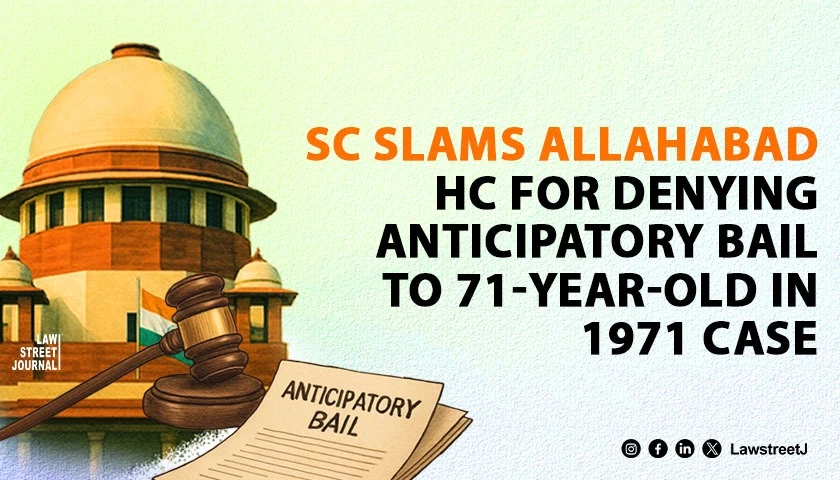New Delhi: The Supreme Court has sharply criticized the Allahabad High Court for denying anticipatory bail to a 71-year-old woman in a forgery case involving a sale deed from 1971, calling the decision “illogical” and directing the complainant-advocate to explain why exemplary costs should not be imposed on him for filing the complaint after more than fifty years.
A three-judge bench of Justices Surya Kant, Ujjal Bhuyan, and Nongmeikapam Kotiswar Singh delivered the order on September 17, 2025, in Petition for Special Leave to Appeal (Crl.) No. 9346/2025 (Usha Mishra vs. State of U.P. & Anr.), while staying the petitioner’s arrest and questioning the very foundation of the criminal proceedings.
The case involves FIR No. 502/2023 filed by a practicing advocate (respondent No. 2) alleging forgery of a sale deed executed on August 21, 1971—over five decades ago. The elderly woman, Usha Mishra, sought anticipatory bail which was denied by the Allahabad High Court on May 27, 2025.
The Supreme Court expressed strong disapproval of the High Court’s approach, stating: “It is quite unfortunate that the Allahabad High Court has illogically turned down the prayer for grant of anticipatory bail to the petitioner, a 71-year-old woman, when she is neither seller nor purchaser nor a witness or the beneficiary of the sale deed dated 21.08.1971.”
The bench noted the questionable timing of the complaint, observing that the advocate had filed the FIR in 2023 “alleging forgery of a sale deed executed way back on 21.08.1971.” This delay of more than fifty years raised serious concerns about the bona fides of the complaint and potential abuse of the legal process.
The Court took serious note of the advocate’s conduct, directing: “Respondent No. 2 shall also show cause as to why exemplary costs should not be imposed on him for lodging this FIR in 2023 alleging forgery of a sale deed executed way back on 21.08.1971.”
Further highlighting concerns about the advocate’s behavior, the Court observed that “Respondent No. 2, a practicing advocate, at whose instance the subject FIR has been lodged, is evading service.” To ensure his presence, the Court issued bailable warrants of ₹10,000 with equal surety and directed the Commissioner of Police, Lucknow to execute them, warning that non-bailable warrants would follow if he showed reluctance to accept notice.
The Supreme Court’s criticism extended to the casual manner in which the High Court had handled the matter. The bench remarked: “The casual manner in which the impugned order has been passed warrants introspection. We will not say more than this at this stage.”
The Court stayed the arrest of the elderly petitioner while the matter remains pending, providing immediate relief to the 71-year-old woman who would otherwise face the prospect of arrest in a case where her connection to the alleged crime appears tenuous at best.
In a significant move, the Court questioned the very validity of the criminal proceedings, directing the Station House Officer (SHO) of the concerned police station to “produce the original record leading to registration of FIR No. 502/2023 and further show cause as to why such proceedings, prima facie being an abuse of process of law, should not be quashed.”
Case Title: Usha Mishra vs. State of U.P. & Anr.













